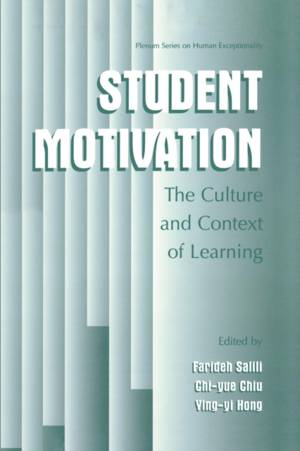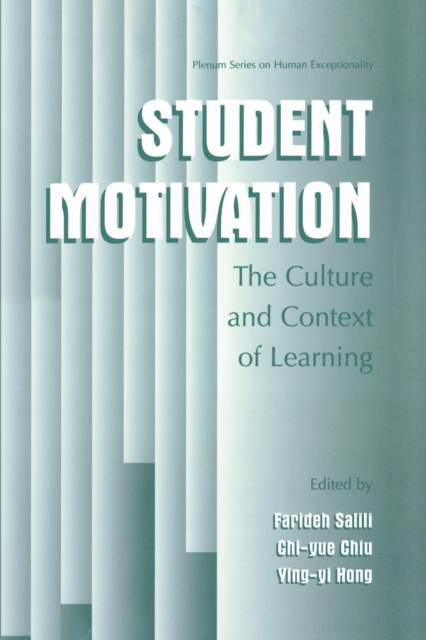
- Afhalen na 1 uur in een winkel met voorraad
- Gratis thuislevering in België vanaf € 30
- Ruim aanbod met 7 miljoen producten
- Afhalen na 1 uur in een winkel met voorraad
- Gratis thuislevering in België vanaf € 30
- Ruim aanbod met 7 miljoen producten
Zoeken
Student Motivation
The Culture and Context of Learning
€ 153,95
+ 307 punten
Omschrijving
Ever since the advent of the intelligence test we have thought of exceptional achievement in terms of cognitive attributes. We have words and phrases like "genius," "above average intelligence," "average" and "mentally deficient" to describe different levels of cognitive ability. In the United States widespread use of intelligence tests followed the success of the in World War I, and for the next half-century Army Alpha and Beta Tests intelligence tests were the major measures used to predict school and vocational achievement. Learning was primarily studied in laboratories, and the behaviorist theories that were dominant largely dealt with changes in overt behavior. As a result there was relatively little influence of learning research on concepts involving cognition and intelligence. The transition from behaviorism to cognitive psychology that began in the 1940's and 50's came into full flower in the 1970's and 80's, and great progress was made in understanding learning, memory, and thinking. In the decades following World War I there had been many debates about the possible influence of environmental conditions on intelligence, but the cognitive abilities measured by intelligence tests were generally believed to be determined by heredity. The intelligence tests of cognitive abilities correlated substantially with academic performance; so their use in determining which students needed special help in school or which students were capable of university work was widely accepted. As cognitive psychology became dominant, it became apparent that although heredity was important, intelligence consisted of learnable abilities.
Specificaties
Betrokkenen
- Uitgeverij:
Inhoud
- Aantal bladzijden:
- 364
- Taal:
- Engels
- Reeks:
Eigenschappen
- Productcode (EAN):
- 9781461354727
- Verschijningsdatum:
- 24/09/2012
- Uitvoering:
- Paperback
- Formaat:
- Trade paperback (VS)
- Afmetingen:
- 156 mm x 234 mm
- Gewicht:
- 548 g

Alleen bij Standaard Boekhandel
+ 307 punten op je klantenkaart van Standaard Boekhandel
Beoordelingen
We publiceren alleen reviews die voldoen aan de voorwaarden voor reviews. Bekijk onze voorwaarden voor reviews.






